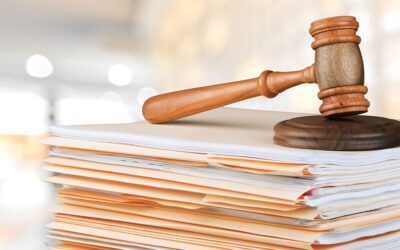The American Academy of Sleep Medicine recommends that adults receive at least seven hours of sleep each night. While some people receive inadequate sleep by choice, others suffer from sleep disorders. Continue reading this post and find out if Sleep Disorders a Disability. The prestigious Cleveland Clinic reports that about 70 million Americans suffer from sleep disorders such as narcolepsy or sleep apneas. However, those are not the only conditions that fall under the heading of “sleep disorders” — there are a variety of sleep disorders that manifest themselves in different ways. If a sleep disorder causes excessive daytime sleepiness and cannot be effectively treated, it may be the basis of a mental health disability benefits claim.
What Kinds of Sleep Disorders Are There?
Insomnia
Sleep disorders are not limited to insomnia, and insomnia presents in different ways. Some people cannot fall asleep even when they are tired, while others can fall asleep easily but cannot stay asleep throughout the night and obtain sufficient restorative sleep. Insomnia has a variety of causes, including certain behavioral health disorders such as anxiety or depression, but physical illness and pain, medications, and certain neurological conditions can also cause insomnia.
Sleep Apnea
Sleep apnea is another common sleep-related disorder, which results from blockage of the upper airway. Sleep apnea is a significant cause of excessive daytime sleepiness and fatigue. Obstructive sleep apnea can result from large tonsils or adenoids but is also associated with obesity. Another form of sleep apnea is central sleep apnea, resulting in choking episodes during the night. While often associated with obesity, central sleep apnea can result from a stroke or other conditions that affect the brain stem. Both forms of sleep apnea can often be treated with continuous positive airway pressure (CPAP) or bi-level positive air pressure (BIPAP); however, some people cannot tolerate sleeping with a mas,
Narcolepsy
Narcolepsy is also a significant sleep disorder that causes people to feel exhausted during the day and can suddenly fall asleep. If accompanied by cataplexy, muscle control loss can cause injury when they have a sudden onset of sleep.
Restless Leg Syndrome
Restless leg syndrome or periodic leg movement disorder is another condition that disrupts restful sleep and occurs involuntarily during the night.
REM Disorder
REM Behavioral Disorder occurs when people act out vivid dreams at night and often have violent movements and vocal outbursts. It usually occurs with or just before the onset of neurological disorders such as Parkinson’s Disease, multiple system atrophy, narcolepsy, or Lewy body dementia.
Shift Work Disorder
A common sleep disorder is Shift Work Disorder, which occurs in individuals whose jobs require them to work late at night or early in the morning and disrupt normal circadian rhythms.
How Are Sleep Disorders Diagnosed?
Sleep disorders are diagnosed by sleep studies, non-invasive overnight examinations that monitor the patient while they sleep. One such test is known as polysomnography, a test that measures a variety of functions during the test period, such as eye movements, limb movements, respiration, oxygen saturation, and heart rate. A Multiple Sleep Latency Test measures how quickly someone falls asleep and how quickly they enter REM sleep.
REM sleep (rapid-eye movement) occurs after three prior sleep stages. Stage 1 is the transition period between being awake and asleep and results in the body relaxing, and heart rate and brain activity slow. Stage 1 typically lasts 5-10 minutes. Stage 2 sleep then occurs as the body relaxes even more and body temperature drops. After about 20 minutes, Stage 3 begins. During that stage, brain waves slow and deepen, and the body relaxes further and progresses into the deepest sleep, which is REM Sleep. Stage 4, REM Sleep, begins about 90 minutes after falling asleep. While the body is relaxed and immobilized, the brain is very active, and the eyes move rapidly.
Another commonly used test is Actigraphy – a device that measures sleep and motor activity for days to determine a person’s circadian rhythm (i.e., a 24-hour cycle of sleeping and being awake), controlled by the hypothalamus in the brain.
What Do I Do If I Have Been Diagnosed With a Sleep Disorder
Some physicians specialize in and focus their practices on sleep disorders. Such physicians become board certified in sleep medicine by completing a fellowship after residency training in a more general field. The majority of sleep medicine doctors come from the fields of internal medicine, neurology, and pediatrics. Specialists in sleep medicine can help confirm a diagnosis of a sleep disorder and treat various sleep disorders.
How Do I Qualify for Disability Benefits for a Sleep Disorder?
If someone is diagnosed with a sleep disorder that affects their ability to work, they may be eligible for disability benefits if their condition cannot be effectively treated. Complaints about being tired or fatigued would not be enough to qualify for disability benefits. Still, if the condition is severe enough, doctors use a measurement known as the Epworth Sleepiness Scale to evaluate the severity of the condition and its impact. The higher the score, the greater the severity of the excessive daytime sleepiness and its impact on the ability to work. The other testing referred to above is also an extremely useful way to evaluate sleep disorders and objectively demonstrate their severity. For instance, one of the results reported during polysomnography is the Apnea-Hypopnea Index (AHI), which measures oxygen levels during sleep. A normal oxygen saturation level is above 95%, but it is considered moderate when it falls into the 80-90% range, and a desaturation level below 80% is severe.
The more objective testing and measures of sleepiness a claimant can present, the likelier it is that a disability claim will be approved so long as treatment has been unsuccessful or impractical.
Experienced Disability Insurance Lawyers Can Help with Sleep Disorders Claims
If a sleep disorder has been refractory to treatment and affects job performance, an experienced attorney can assemble the strongest claim possible. While many people claim they are tired or fatigued, those complaints may or may not indicate a sleep disorder. But suppose someone has been diagnosed with a sleep disorder. In that case, it is a serious condition that can qualify for disability for the same reasons that other medical conditions result in disability – it affects the cognitive abilities they need to maintain to work. It places them at risk of workplace accidents. An experienced attorney familiar with sleep disorders can help claimants prove their claims to the satisfaction of their disability insurers.
Know Your Rights
You may qualify for disability benefits if you are experiencing a mental health condition that impacts your ability to work.
Our team has the experience and proven track record to guide you and protect your benefits.
Does This Apply to You?
Contact DeBofsky Law for an attorney consultation. We will work with you to figure out your problem, and how we can help.
“You were the hardest working and most compassionate Attorney I have ever worked with.”
Sally G | Client
Learn More About Mental Health Disability & Disability Benefits in General
What Is Medical Opinion Evidence in a Long-Term Disability Case?
When filing a long-term disability (LTD) claim, success often depends on strong medical evidence. Among the most critical forms of proof is medical opinion evidence, which includes expert assessments from healthcare providers about your condition and limitations. […]
Why Do Disability Claims Get Denied?
There are many reasons a disability claim may be denied, and no two cases are identical. However, the following are some common reasons that disability claims are denied, based on our experience […]
ERISA Ruling Is a Win For DOL Regulatory Authority
During its most recent term, the U.S. Supreme Court overturned a 40-year-old precedent that guided courts in addressing administrative agency interpretations of the laws they regulate. In Chevron U.S.A. Inc. v. Natural Resources Defense Council Inc.,[1] the Supreme Court ruled in 1984 […]



